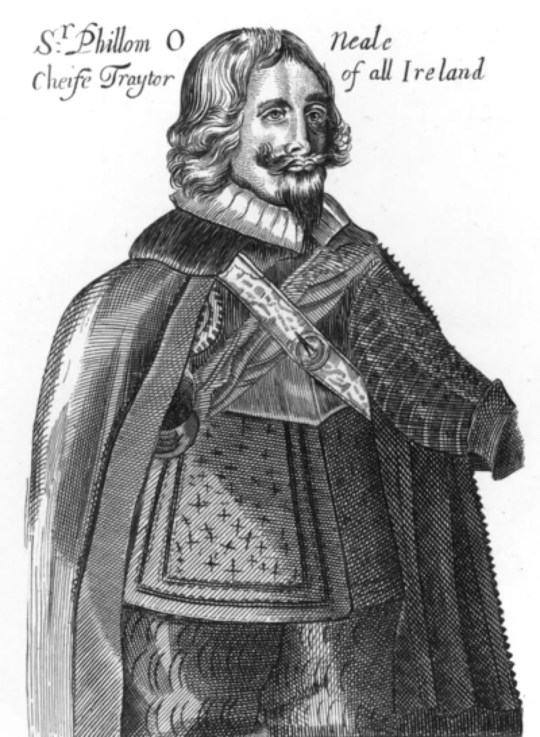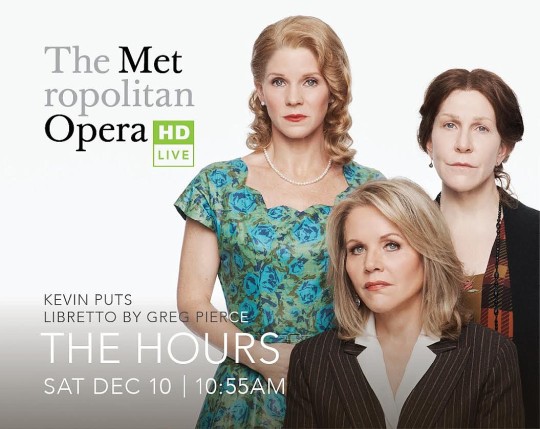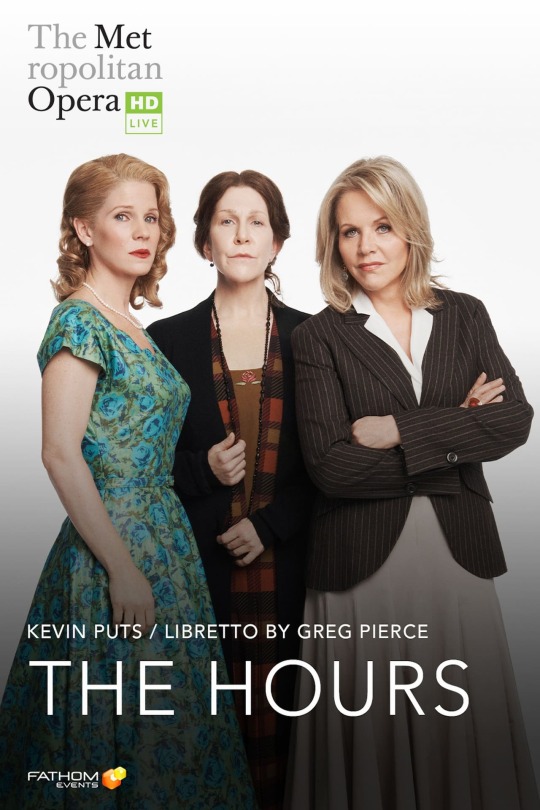#phelim
Explore tagged Tumblr posts
Text



I had ideas and try realistic style drawing, they look weird
#furry art#digital art#furry#furry anthro#furry oc#anthro#my oc art#furry fandom#my art#art#furry bird#helluva boss oc#art sketch#colored doodle#my oc stuff#artists on tumblr#bird oc#calest#phelim#frillhon#iartbook
24 notes
·
View notes
Text

The first official cover splash art for the Mallory Bash screenplay I'm currently writing.
#mallory bash#milk carton kids#dreaming tree#dark garden#hynagogue#arbornacle#isaac#isaac aldo#saki#saki tsukino#ava#ava baker#exodus#coyote girl#phelim#odran#odran bash#moonblush#moonblush village#nightdrift#nightdrift county#skyladder#mount skyladder#ira lloyd#cyrus#dave matthews#illustration#character design#cartoon#animated film
2 notes
·
View notes
Text
Only O’LiamRoe remained by Margaret Lennox’s side as the doors reopened and in the shadows a man came to stand, fair, lightly made and dimly sparkling, like crystal half-seen in the dark, a young page carrying a baton at his back. Then he moved out into the fine room and the monkey, shrilling, dropped on to the cloth of gold tabard, thick and dazzling as the sun on the sea. ... O'LiamRoe looked at the Countess. Her unusually bleached good looks which he had been admiring a moment before had given way to a sudden queer heightening of her splendour. She drew a long, unsteady breath. The air, which had been alive as an eel bath with brilliant unchosen words, became abruptly quite dead. ... Turning, he looked at Vervassal again. The shrillness of temperament you might have suspected from that opening sentence was not in fact there; rather there was, nearly concealed, a sort of residual power, clear as blown glass, piercing and concentrated as a needle of ice. O’LiamRoe became conscious that the man was looking at him, and turned away. The herald’s gaze turned to Lady Lennox, who, O’LiamRoe could not know, saw none of these things: saw an untouched boy’s face of eight years before and another, more recent, with the new hammer-shapes of leadership plainly on it. And now here was a face she had never quite seen, circumstances she did not know, an intellect she recognized, an illness he could not easily hide, pressed and frozen together into a detachment as dark and icy as O’LiamRoe’s, for example, was shallow and warm. For all these reasons, for the surge of a blind force within her that she had throttled all these years before and abandoned for dead, Margaret Lennox looked back at Lymond and was silent.
- Queens Play, Part 3 VI London: The Nettle and the Venom
#f*ck me but do i love this description of Lymond#i am gleeful for any scene between him and margaret douglas#“my hope of heaven and my knowledge of hell”#for all its faults i love the writing in queens play an obscene amount#the descriptions are just#*chefs kiss*#i have a compilation of thady boy highlights saved up#also#just#poor francis trying his hardest and doing his best to save everybody without anyone dying and everyone continuing to think the worst of him#the nightshade incident#i will never be over phelim's absolute tirade at him for being drunk and wrecking himself and prostituting himself#ALL OF WHICH IS TRUE#hurling wine and water over him mercilessly#while francis is there TRYING NOT TO DIE#laughing through the agony#aiiieeeeee#DOROTHY#got myself off on a tangent there but my goodness i do love so much about this book#queens play#lymond chronicles#dorothy dunnett
16 notes
·
View notes
Text
by Christian Toto
The play’s performance at Princeton earlier this month went off without a hitch. The next stop on the college tour may be different.
McAleer and McElhinney’s email newsletter shared news, gleaned from Instagram posts, that pro-Palestinina protestors plan to buy tickets to the show and “disrupt” the performance. The production will be held at UCLA on Oct. 7 – the one-year anniversary of the terror attacks.
“They want to start a riot and make it impossible for us to perform the play,” the newsletter said.
The HiT ‘cast spoke to McAleer and McElhinney earlier this week about what it took to produce a show like “October 7” given the violent protests we’ve already seen across the country.
“We were the only play in New York that needed a permanent police presence,” McAleer told the HiT ‘cast. “What kind of a world are we living in?”
“New York is home to the biggest Jewish population outside Tel Aviv, but it’s unsafe to put on a Jewish play giving voice to Israelis in New York,” he added.
McAleer said he kept one part of the security plans quiet during the show’s Big Apple run. His team hired an armed security guard to be on-site for every performance in addition to other precautions.
“That’s what we had to do to make the actors comfortable, so they could concentrate on their art,” he said. “I’m not sure a play about Palestine or Gaza from a Gazan’s perspective would need police protection outside.”
Thankfully, nothing untoward happened. The show went on for several weeks. The material still kept some actors from appearing in the show, the duo shared.
“A lot of actors didn’t want to do this play because they feared it might harm their career,” he said.
15 notes
·
View notes
Text
queen's play is so fucking funny because when it starts you think lymond is in disguise as this ridiculous irish prince. you eventually find out that he's actually in disguise as the ridiculous irish prince's fat drunk loser servant, which is already a funny twist. but once that revelation is made, the real kicker is when you realize that the ridiculous irish prince, whose ridiculous behavior you had previously written off as weird mannerisms that lymond is playing up to improve his disguise... is just LIKE THAT. He's JUST an extremely lame weird guy! he's not doing a bit! he's not playing a part! THAT'S JUST WHAT HE'S LIKE!
24 notes
·
View notes
Text
if any more Lymond people are considering signing up for Rare Pair Exchange this year, there's still a day and a bit to do so (deadline is 11:59pm EDT on May 11), it's one that accepts fic (1000+ words) AND art, AND there are 17 whole ships nominated. Look at this beautiful (?) list....
Adam Blacklock/Francis Crawford*
Adam Blacklock/Kate Somerville
Catherine d’Albon/Marthe*
Catherine d’Albon/Philippa Somerville
Danny Hislop/Mikal*
Francis Crawford/Philippa Somerville
Francis Crawford/Robin Stewart*
Francis Crawford/Will Scott
Graham Reid Malett/Ivan the Terrible*
Guzel/Marthe
Guzel/Oonagh O’Dwyer*
Jenny Fleming/Piero Strozzi*
Margaret Erskine/Kate Somerville*
Mariotta Crawford/Molly*
Oonagh O’Dwyer/Phelim O’LiamRoe
Oonagh O’Dwyer/Christian Stewart*
Richard Chancellor/Francis Crawford/Philippa Somerville*
*= so rare it had not yet been seen on ao3 (or possibly anywhere) 😱 unless I'm forgetting something because it's 2am
full list of nominated ships here, including two that are terrifying crossovers with Elizabeth Wein's Lion Hunters series! (which I and others highly recommend, they're wonderful and resonant and probably up your alley, and each is like 1/3 the length of a Lymond book)
The crossover ships are Gabriel/Morgause and Abreha/Guzel <3
#i say this like i don't still need to sign up myself#lymond chronicles#lymond#lymond chronicles spoilers#dorothy dunnett#rarepair exchange#rpe2024#all the ones that happened to be on the poll delight me#and then jenny/piero really made me laugh again as i typed it out#wow where did these even come from#will we ever know#asterisk removed! there is one oonagh/phelim fic from ten years ago#waving to those of you who already signed up :)
10 notes
·
View notes
Text
#OTD in 1641 – Sir Phelim O'Neill of Kinard, the leader of the Irish Rebellion, issues his Proclamation of Dungannon justifying the uprising and declaring continued loyalty of Charles I.
Elected a member of the Irish Parliament in 1641, O’Neill appeared to be a supporter of King Charles I. Nevertheless, on 22 Oct 1641, he seized the strategically important Charlemont Castle, Ulster, and then created confusion by claiming that Charles had authorised this act. O’Neill’s followers proceeded to massacre hundreds of England’s colonists in Ulster, but after besieging Drogheda, Co…

View On WordPress
#Charles I#History#History of Ireland#Ireland#Irish History#Proclamation of Dungannon#Sir Felim O&039;Neill#Sir Phelim O&039;Neill#Today in Irish History
13 notes
·
View notes
Text

Working on ffas lore working working...
#need to write some abt the other revolutionary group which exists in the world which is like the guy fawkes to faolan's phelim o'neill next#wip: ffas#jory.txt
3 notes
·
View notes
Text

sure, buddy
#lymond blogging#it surprised me to see that everyone seems to read Robin’s feelings as unrequited#solely because there’s no logical earthly reason for Lymond to like him back :P#but that’s a big part of what compels me about them. Lymond did love his garbage trash not boyfriend#the oonagh/Phelim parallels and the way Lymond acts in this scene make that pretty clear to me
7 notes
·
View notes
Photo

The Hours is a new opera with music by Kevin Puts and a libretto by Greg Pierce. Based on the novel of the same name by Michael Cunningham and its film adaptation, the production was chosen by star soprano Renée Fleming for her return to the Met stage. During the intermission interview, Puts and Pierce share that the piece was written almost entirely during lockdown, and shared their material and questions for each other via texts, calls, and emails. Fleming is joined onstage by mezzo-soprano Joyce DiDonato, and soprano Kelli O’Hara.
Act one starts strong with scenes featuring DiDonato as Virginia Woolf in 1923 working on her novel Mrs Dalloway; Fleming as Clarissa in the 1990s, preparing a dinner for her friend Richard, dying of AIDS; and the Metropolitan Opera chorus. Costumes by Tom Pye for the chorus have a startling dye job that, under the correct lighting, give the effect of the entire production being set underwater. However, the lighting changes from scene to scene, and the chorus never changes costume, leaving only a few further scenes in the remainder of the opera where the effect is again employed.
Puts’ score is most effective in its slower, lyrical sections, showcasing the Met Opera’s full orchestra. While not having heard any other work by Puts, the driving sections that propel the plot are typical of any other contemporary composer, i.e. Nico Muhly and John Adams, and not evocative of any personal style. Wind and string sections play highly rhythmic patterns that have slow harmonic changes, surely a nod to Philip Glass who scored the film version. The prelude to the first scene featuring Woolf is unfortunately scored for solo piano. It is both ineffective and jarring, barely able to accompany DiDonato’s rich voice by itself. The piano is brought back several times, and used for effect alongside the orchestra, to the detriment of the score as a whole.
It is in this scene when we are first introduced to Leonard Woolf played by the entirely miscast Sean Panikkar. Next to DiDonato, Panikkar looks like a hulking 7-foot-tall Adonis thirty years too young to play her husband. He had a pleasant tenor voice, but weak diction. Having to always share the stage with DiDonato also made it seem that his acting abilities were lacking, but I come up with a short list of other singers that could hold their own next to her.
Following this we are taken back to the 90s and treated to one of the two most striking scenes in the entire opera - the second is also in the 90s timeline, which is indicative. Clarissa is shopping for flowers and flirting with the owner, Barbara, played by Kathleen Kim. Kim has a fantastic coloratura voice and stage presence, put to great use by Puts who quotes several Mozart arias, a la Corgliano’s Ghosts of Versailles: the high Fs of the Queen of the Night enticing Clarissa to buy Ha-ha-ha-hydrangeas, and the final Pa-pa-pa-pa’s of Papagena for peonies. The entire chorus encircles them, bunches of flowers in both hands, the tableau bursting with colour and texture, reminding me of the framing of Mother Mary in the The Cell (2000) as well as the final shots of Midsommar (2019). My only complaint is that the bouquets could have been bigger and even more vibrant.
We are finally introduced to Kelli O’Hara’s Laura Brown in the 1950s, reading Mrs Dalloway in her bed, dreading to get up and greet her family on her husband’s birthday. This section came across as the weak link as the character had nonexistent motivations for her actions and a clichéd plot. How many stories in film and television have we already seen about a repressed housewife in the 1950s ready to buckle under the pressure of keeping the surface of her life glossy and clean? Brown feels no connection to her child and leaves him with a neighbour - also played by Kim - as she runs to a motel to kill herself with a bottle of pills. Her husband has done the irredeemable deed of buying her flowers and letting her sleep in on his birthday, and constantly showering their son with affection.
Kelly O’Hara’s acting was always visible, in the sense that it was constantly distracting to watch her and see her, for lack of a better term, go through the motions. Fleming and DiDonato in comparison seemed completely authentic. They were characters plucked from their lives and put on the stage, reacting to everything around them, and making choices and decisions moment to moment. There is something inexplicably off-putting about O’Hara’s performance, not even getting into the fact that the part is out of her grasp. The notes were there, of course, but the timbre of her voice was frequently strained, and not pleasant to listen to. Beside her co-stars there is a clearly audible gulf of technical proficiency between her and them.
Supporting the three leads is an ensemble of singers of mixed quality. Clarissa’s dying friend Richard is sung to perfection by bass-baritone Kyle Ketelsen. His rich voice could project at every dynamic, convey every emotion, and delivered every word with clear diction. His acting was also far better than most opera singers and met Fleming beat for beat, especially in the best scene of the entire opera where Clarissa visits Richard for one last time in his New York apartment. Clarissa’s partner Sally was played by Denyce Graves, whom I loved in Marnie, but sounded less than stellar in this live broadcast, every note uttered with a grating squawk.
In the 1950s Laura Brown’s husband delivered his lines serviceably, but not memorably. Her son was a a scene-stealer, and had a voice that projected loudly and clearly over the entire orchestra and chorus in the finale of Act 1. Back in the 20s, DiDonato is joined by another mezzo-soprano, Eve Gigliotti, playing the maid Nelly. From register to register Gigliotti’s voice was resonant and clear and I could only think of other parts I would love to hear her perform.
Finally, in another double-role, Sylvia D’Eramo plays Kitty in the 50s, and Woolf’s sister Vanessa in 1923. D’Eramo's voice seemed to belong to another singer, sounding more mature and full than her youthful looks would have you expect. She never took the focus away from O’Hara or DiDonato, but maybe should have been given the role of Brown instead. Next to O’Hara, D’Eramo was much more interesting to listen to and watch, and was able to play the young woman sharing a fleeting kiss with Brown, and mother to three as Vanessa.
There are two choices in this production that served no readily apparent purpose, and therefore failed in execution. First, a lone countertenor from the chorus singing wordlessly at the three leads throughout, the symbolism unclear if it had intention in the first place. Additionally, there is a dance cohort onstage for nearly the entirety of the production that serves no purpose other than to fill space, clutter the scenes with extra bodies, and brandish empty symbols of books, flowers, and kitchen appliances in the corresponding time periods. The oddest choice of all, to have one male dancer among the dozen or so women.
The set was disappointing and did not make use at all of the space and funds that the Met surely has at its disposal. Yet, in the second act there is one wow-element where a large silk screen comes billowing down from the ceiling and stretches right to the bottom of the stage to catch a set of black-and-white projections, a flashback with Clarissa and a young Richard on the beach, after which it is released and cascades to pool on the floor behind the singers. Again, it seems as the most care and attention is made for Fleming’s 1990s scenes.
Throughout the opera there is a reference to Richard’s book being great, but suffering from a ‘tacked-on’ ending. Ironically, this opera also suffers from the same fate. The finale is a chance for the leading women to shed their characters - none does so faster than O’Hara - adjusting their body language, and gazing directly into the audience, to address us in a trio containing only a handful of sentences, repeated ad nauseum with nearly no melodic variation, ‘Here is the world and you live in it. All alone. You try.’ I couldn’t tell if it was supposed to be sentimental, uplifting, melancholy, or what, but ultimately it comes across as smarmy. Richard Strauss this is not, despite Fleming and co. giving it their all.
#The Hours#metopera#renee fleming#joyce didonato#kelli o'hara#kevin puts#greg pierce#virginia woolf#mrs dalloway#phelim mcdermott
2 notes
·
View notes
Text
youtube
Ideia boa, execução ruim: O uivo (Howl, 2015)
#Howl#Howl movie#werewolves#ed speleers#Paul Hyett#full moon#trains#werwolf#Holly Weston#Sam Gittins#Sean Pertwee#Shauna Macdonald#Rosie Day#Elliot Cowan#Calvin Dean#Brett Goldstein#Duncan Preston#Ania Marson#Robert Strange#Phelim Kelly#Amit Shah#Youtube
1 note
·
View note
Text
silly guy

#furry#furry oc#my artwork#furry art#digital art#furry anthro#anthro#my oc art#furry cute#artists on tumblr#cute guy#furry bird#silly little guy#phelim
16 notes
·
View notes
Text

Happy New Year, from Mallory Bash!
I'm gonna be too busy celebrating at the hour of observation, so enjoy this year's postcard on this, the eve of the Day Of Recovery. Decided to get the adults all in on this one, since I don't get to draw them as much--especially Mal's parents there on the far right. Just for fun, they're all drawn with the favorite drinks: Odran: Scotch, neat (via his family's distillery at Glen Bash) Olivia: Wine, Shiraz Cyrus: Wine, Pinot Noir Miss Eve Parker: Dry Martini, olive and lemon garnish Phelim: Bourbon, neat Mary: Sazarac (Rye Whiskey, Absinthe, Peychaud's Bitters, Sugar, but with an orange garnish rather than lemon)
#mallory bash#new year#new year 2024#happy new year#happy new year 2024#illustration#cartoon#odran#odran bash#olivia#olivia tsukino#cyrus#cyrus jones#dave matthews#eve#eve parker#ms parker#miss parker#phelim#phelim bash#mary#mary behr#mary jones#moonblush#moonblush village#dreaming tree#dark garden#milk carton kids#hypnagogue#arbornacle
3 notes
·
View notes
Photo

Ganz große Oper live aus der Met: An einem Tag in den 20ern ringt Virginia Woolf (rechts) um einen Anfangssatz für Mrs. Dalloway (sie organisiert eine Party und besorgt die Blumen selber) und ist mit ihrem Leben unzufrieden, an einem Tag in dem 50ern liest die amerikanische Hausfrau und Mutter Laura (links) Mrs Dalloway, obwohl sie eine Geburtstagsparty für ihren liebenden, aber unaufmerksamen Mann organisieren sollte und ist mit ihrem Leben unzufrieden und an einem Tag um das Jahr 2000 organisiert Clarissa (mitte) eine Party für Richard, ihre hoffnungslose und an AIDS erkrankte große Liebe. Er nennt sie Mrs. Dalloway und soll einen Literaturpreis bekommen, weil er stirbt, ist aber überhaupt nicht in der Verfassung für eine Party. Clarissa ist auch nicht richtig zufrieden mit ihrem Leben. Wo wir es gerade von berühmten Romanen haben, die an einem einzigen Tag spielen. Michael Cunninghams vielgepriesenen The Hours haben wir leider immer als So-ein-Frauenbuch abgetan und Stephen Daldrys Verfilmung in reflexhafter Nicole-Kidman-Vermeidung geschmäht, aber als monumentales Bühnenspektakel mit herrlichster Musik für drei grandiose, überlebensgroße Operndiven funktioniert es für uns natürlich ganz fabelhaft. Wir freuen uns halt immer, wenn jemand singt.... (Wir nehmen uns jetzt trotzdem mal vor, diesen Film anzuschauen. Der hat Musik von Philip Glass, so fügt sich doch alles wieder schön zusammen.)
#The Hours#Kelli O'Hara#Renée Fleming#Joyce DiDonato#Oper#Kevin Puts#Greg Pierce#Phelim McDermott#Mrs. Dalloway#Virginia Woolf
0 notes
Text
MET 2022/2023: THE HOURS (FLEMING-O'HARA-DiDONATO-KETELSEN;NÉZET-SÉGUIN, McDERMOTT)
MET 2022/2023: THE HOURS (FLEMING-O’HARA-DiDONATO-KETELSEN;NÉZET-SÉGUIN, McDERMOTT)
El MET de New York, fidel al seu projecte artístic d’oferir cada temporada títols contemporanis de compositors nord-americans estrena aquesta temporada The Hours, una òpera en dos actes amb música de Kevin Puts (1972, Saint Louis, Missouri) i llibret de Greg Pierce, basat en la novel·la del mateix títol de Michael Cunningham i de la que posteriorment es va fer una notable adaptació…

View On WordPress
#.Lena Josephine Marano#Atticus Ware#Brandon Cedel#cDermott#Eve Gigliotti#Greg Pierce#John Holiday#Joyce DiDonato#Kai Edgar#Kathleen Kim#Kelli O&039;Hara#Kevin Puts#Kyle Ketelsen#Orchestra of the Metropolitan Opera House#Patrick Scott M#Phelim McDermott#Rebecca Ringle Kamarei#Renée Fleming#Sean Panikkar#Sylvia D&039;Eramo#The Hours#Tony Stevenson#William Burden#Yannick Nézet-Séguin
0 notes
Text
I don't care about the stormcloak rebellion or the empire. me and these atrociously written demonised indigenous people in the reach are committing unlimited genocide on the nords immediately
If they won't make another elder scrolls game in a timely manner can they at least release a skyrim dlc which allows you to side with the forsworn and kill everyone
38 notes
·
View notes